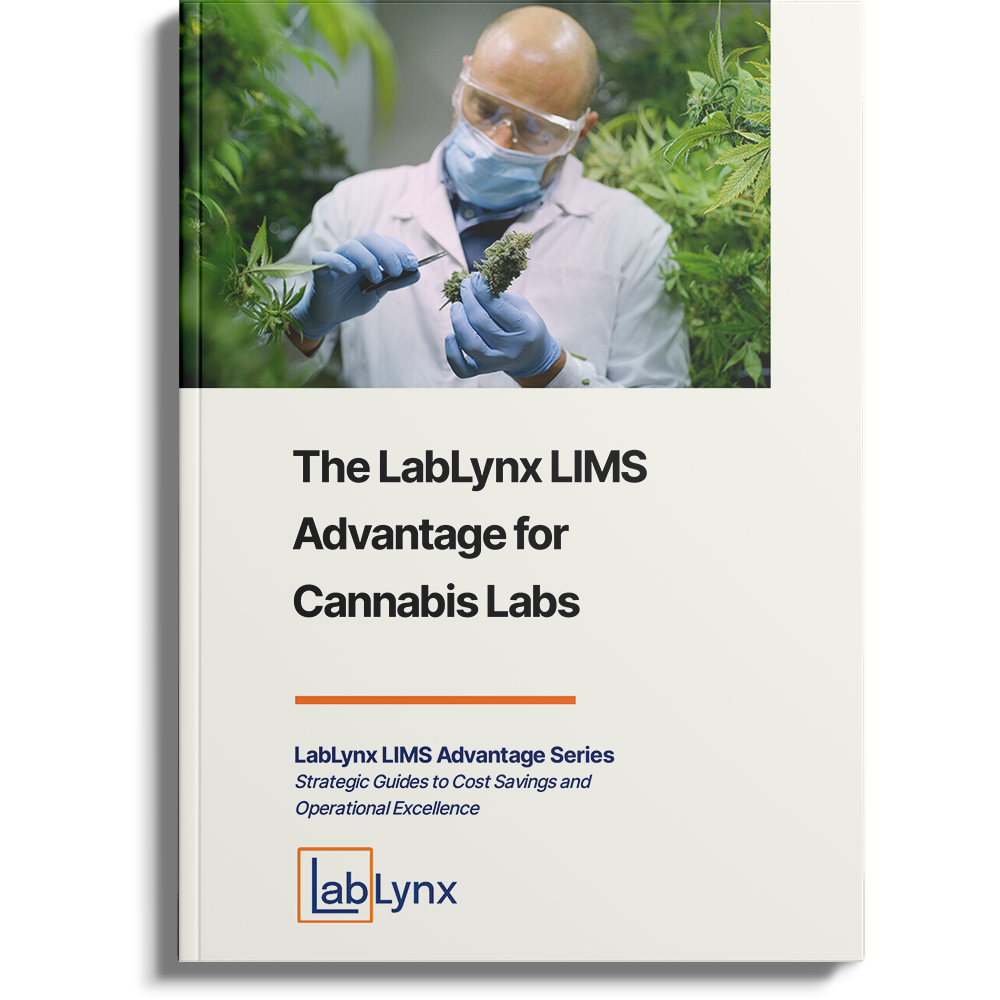This content has been archived. It may no longer be relevant
The pandemic may have created havoc on businesses almost everywhere, but hemp and cannabis continue to thrive and even gain momentum. Besides meeting food and drug safety standards, licensed cannabis producers must pass THC potency thresholds before their crops can be used to make medicinal, adult-use, or industrial cannabis products. Hemp is strictly regulated and monitored to guarantee it meets legal limits. These additional requirements create a demand for accurate, reliable yet rapid laboratory testing.
To piggyback of the success of these expanding markets, labs need to know just where the opportunities are.
Cultivation Trends from 2020

The top-line number for 2020 was promising. According to Cannabiz, the number of active cultivation licenses grew 27% year-over-year to 18,169, but that number is deceiving. California and Oklahoma combined accounted for more than 80% of the licenses issued last year. Most states issued few new licenses and some even saw the number of licensees’ decline. Overall revenues continue to climb, remaining robust despite, and in part because of, the pandemic. According to Flowhub.com, US cannabis sales increased 67% in 2020.
Despite the increase in cannabis sales, hemp and CBD (cannabidiol) food and beverage sales are down significantly in 2020 as opposed to 2019 according to Food Business News.
Much of the reason is that most products are only sold in convenience stores, rather than grocery stores, according to Justin Singer, Chief Executive Officer and Co-Founder of Caliper Foods based in Commerce City, Colo. It remains a huge opportunity market once distribution is set up properly. Singer goes on to make the point that the food and beverage industry, in general, has little experience in working with hemp/CBD, which means opportunities for labs:
“This is all new science — how CBD works in formulations,” Singer said. “There are no shortcuts in formulations when working with a novel ingredient. You have to test it. You cannot make assumptions.”
License Caps Limit Cultivators

In several states, cannabis producers are recovering from a glut of cannabis supply that have driven prices down to unsustainable levels. In fact, many licensed producers merged or went out of business entirely. The surviving producers were well funded and more efficient, putting them in a stronger position now that prices are on the rise again.
The nature of cannabis legalization in other states also contributes to the limited number of new licenses. States like Arizona and New Jersey limit the number of cultivation licenses they issue and Arizona only issues one license for every ten medical marijuana pharmacies in the state. New Jersey’s cap is not quite that strict. The state’s recently enacted adult-use law allows 37 licenses to be issued over the next two years, however, this only applies to large growers. New Jersey does not restrict the number of licenses issued to businesses with less than 2,500 square feet of canopy space.
Diversifying Cannabis Cultivation

California, by comparison, is not only more generous in the number of licenses it issues, but also has a more multifaceted cultivation business. Last year, the state created “appellation of origin” regulations that will let growers create premium branding for their products. California counties are also passing regulations to protect growers focused on medical and adult-use marijuana products. Humboldt County has permanently banned hemp cultivation out of fears that hemp pollen would reduce the potency of other cannabis crops.
Contamination from Wildfires

During the summer of 2020, states across the American West faced raging wildfires that burned more than 10 million acres and caused $16.5 billion in economic damage. Cannabis growers survived the fire season largely unscathed, but things could have been very different. After smoke and ash fell over cannabis crops, growers had to conduct extensive testing to ensure their plants were not contaminated with toxic residue.
Trends for 2021 and Beyond

As 2021 unfolds, broader state legalization will continue to increase the number of new licenses. Five states expanded access to cannabis last year and another nine states are expected to do so this year. Supply constraints in these new markets, combined with rising cannabis prices in established markets, will lead more companies to launch or expand cannabis-growing operations.
The biggest unanswered question is what will happen at the federal level? Removing cannabis from Schedule I of the Controlled Substances Act will have profound impacts on cannabis production. Now, the federal government turns a blind eye to state bans on out-of-state cannabis; these bans shelter growers from competition but violate the Constitution’s Commerce Clause. State protections will disappear once federal prohibition is lifted.
The industry could see sweeping consolidation of cannabis production as the new reality sets in. Producers that establish quality-based brand reputations and efficient operations are the ones most likely to compete nationally, which means quality labs doing quality testing.
Preparing Labs to Support Cannabis Producers

Cannabis legalization is happening nationally, if not globally, and this will continue to drive increases in the number and size of cannabis producers. Yet these producers must be resilient to all the variables that impact agribusinesses. Testing laboratories that want to serve this developing market must help their clients be as agile and efficient as possible. Laboratories can support growers by returning test results quickly, accurately, and consistently.
CannaQA, the cannabis testing-optimized Laboratory Information Management System (LIMS) from LabLynx, Inc. allows laboratories to deliver the results their cannabis-producing customers expect. Automating your lab’s data-handling process lets you deliver quick turn-around times more efficiently and provides seamless communications to your customers. At the same time, CannaQA helps your lab maintain compliance with state and local cannabis regulations.
- End-to-end sample tracking – Digitize sample tracking from the point of collection to accelerate sample receiving and handling while eliminating manual transcription errors, with complete COCs and integration with track-and-trace systems.
- Customizable tests and workflows – Cannabis testing processes vary but CannaQA lets you easily configure tests and workflows to meet local standards or your lab’s preferred methods.
- Instrument integration – Instruments can cross-reference CannaQA’s sample data to ensure the right sample gets the right test, eliminating errors and re-testing. Test results automatically post to CannaQA for further analysis and reporting.
- Customizable reports – Design reports that give your customers everything they need to know about their test results. Transmit reports that comply with local and state requirements.
- Automated communications – Reduce administrative workloads by automating status updates and test results through text, email or customizable web portals.
- Compliance – Digital sample tracking, compatibility with track-and-trace platforms and customizable automated reporting reduces the overhead of compliance with state and local cannabis regulations.
LabLynx can help implement CannaQA into your lab’s cannabis-testing processes in as little as a week. We can also help integrate CannaQA with your lab’s ERM, CRM and other business operations. As your business grows, CannaQA will grow with you to support multi-site operations as well as testing in other industries.
For more information about how CannaQA LIMS can improve your lab’s support for cannabis producers, visit cannaqa.com or contact LabLynx at [email protected] or 866-LABLYNX (522-5969).
References:
- “Cannacurio: Cultivation Licenses 2018-2020”, Cannabiz.
- “Premium flower demand drives Colorado wholesale marijuana prices to nearly five-year highs”, Marijuana Business Daily.
- “Arizona’s new recreational cannabis firms see strong sales, possible supply issues on horizon”, Marijuana Business Daily.
- “New Jersey recreational marijuana implementation law signed, setting stage for $1 billion market”, Marijuana Business Daily.
- “Cannabis Appellations Program”, California Department of Food and Agriculture.
- “Humboldt County supervisors ban industrial hemp”, Times-Standard.
- “These states may need canna testing labs in 2021”, CannaQA.
- “The case for allowing interstate trade among marijuana-legal states”, The Federalist Society.
- “Sales plunge 75% for food, beverage items with hemp/CBD”, Food Business News.
- “Cannabis Industry Statistics 2021”, Flowhub.com.





